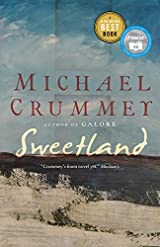Sociology / Folklore 2230: Newfoundland Society and Culture,
|
|
| 1st Midterm examination (approximately 1 month into the semester): | 20% |
| 2nd Midterm examination (approximately 2 months into the semester): | 20% |
| Brief assignments: | 15% | Participation / discussions throughout the semester *** | 25% |
| Final examination: | 20% |
|
Because they are written in 50 minute periods, the two midterm exams will consist primarily of multiple-choice and true-and-false questions.There may be 1 or 2 long answer questions. The final exam will be written duirng the final exam period. Each exam will cover only the material since the previous exam (i.e. they are not comprehensive) so if you miss one, you must write a deferred long answer exam. Each tests a selection from all of the relevant course materials, including the readings, lectures, and videos shown in class. The short assignment exercises will be discussed in class. Participation *** traditionally involves both contribution and attendance but in remote courses, the weight is on your online contributions through the weekly discussions, as well as classroom polling, etc. With the understanding that not everyone can speak up in a large class, contributions also involve group discussions, written in-class reflections, and online blogging on specific items, such as finding relevant film, book, music or material items that illustrate the topics at hand. Written submissions must show an acceptable standard of engagement with the course materials. Attendance will be taken in various ways and on varying days, according to class activities.
A pdf of the compiled statistics from the CEQs for this course is available here. Feel free to email me (Linda Cohen) with any questions you have and please include the course name or number in the subject line. |
Other addresses:
Department of Sociology, MUN
Centre for Instructional and Learning Technologies
©Linda Cohen, 2021, 2018, 2017

